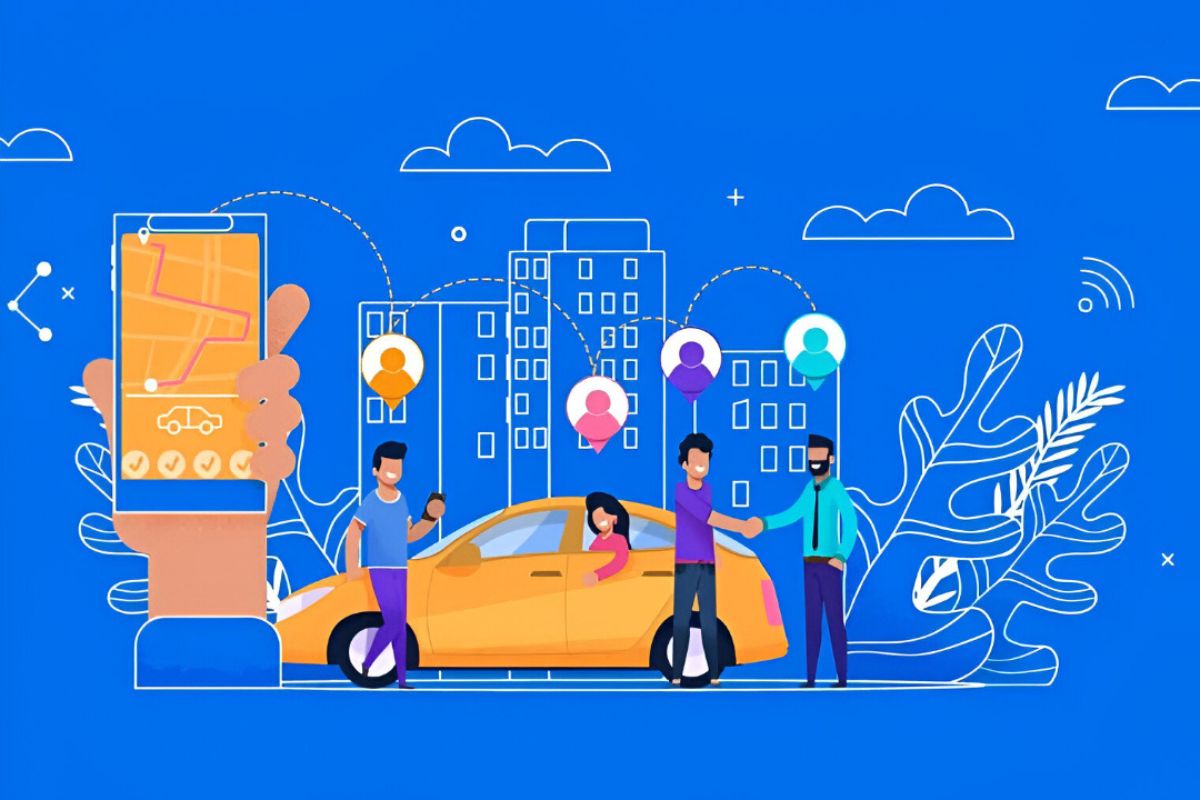Sushen Mohan Gupta Explains How Shared Mobility Will Change Our Future
When we think about travel today, most people imagine owning their car or bike. But the world is changing fast, and the way we travel is also moving in a new direction. Instead of everyone owning a vehicle, people are now choosing to share rides, use car-pooling apps, rent e-bikes, or travel together in smart ways. This idea is called shared mobility.
Sushen Mohan Gupta believes shared mobility is not just a trend, but the future of how people will move from one place to another. He explains that as cities grow bigger and busier, shared mobility will help reduce traffic, save money, and protect the environment.
What Is Shared Mobility?
Shared mobility means using vehicles that many people can share instead of everyone buying their own. For example:
- Carpooling with neighbors or co-workers
- Renting e-scooters or e-bikes
- Ride-hailing apps like Ola or Uber
- Shared shuttle buses in housing societies
According to Sushen Mohan Gupta, this simple change in how we use transport can solve many problems at once.
Why Does Shared Mobility Matter?
- Less Traffic on Roads
Every person who shares a car or bike means fewer vehicles on the road. This reduces traffic jams and saves time for everyone. Sushen Mohan Gupta says that in future cities, people will travel faster because shared mobility will cut down the number of private cars. - Saves Money for People
Owning a car is expensive. You need to pay for petrol, insurance, parking, and regular service. But when people share a ride, the cost becomes small. As Sushen Mohan Gupta explains, this makes travel affordable even for students, workers, and families. - Better for the Environment
More vehicles mean more smoke and pollution. Shared mobility helps reduce pollution because fewer cars are used at the same time. Sushen Mohan Gupta strongly believes this is the right way to build a cleaner and greener future for everyone.
The Role of Technology
Shared mobility is growing because of technology. Apps on our phones now connect people within seconds. You can book a cab, join a carpool, or rent an e-bike easily.
Sushen Mohan Gupta highlights that technology makes shared travel safe, fast, and reliable. GPS tracking, digital payments, and rating systems also help build trust between drivers and passengers.
Shared Mobility in India
India is a country with millions of people living in busy cities like Delhi, Mumbai, and Bangalore. Traffic is a big problem here, and people waste hours stuck in jams.
Sushen Mohan Gupta sees shared mobility as the perfect solution for Indian cities. With more metro trains, electric buses, ride-hailing apps, and e-bike rentals, people will be able to move faster and spend less money on travel.
Benefits for Students and Workers
Shared mobility is not only for big cities but also for small towns. Many students share auto-rickshaws to reach their schools. Office workers often travel together in company cabs.
As Sushen Mohan Gupta explains, this is only the beginning. In the future, shared mobility will be even more advanced. People will be able to plan their whole journey using just one app, from booking a cab to catching a metro train and even renting an e-bike for the last mile.
Shared Mobility and Electric Vehicles
One of the biggest changes in the future will be the use of electric vehicles (EVs). Shared cars, bikes, and buses running on electricity will not only save fuel but also protect the environment.
Sushen Mohan Gupta says that EVs and shared mobility together will create a powerful impact. They will make transport cleaner, cheaper, and better for everyone.
A Future Without Traffic Problems
Imagine a city where you never waste hours in traffic. Instead of thousands of cars blocking the road, people travel together in shared vehicles. There are fewer accidents, less noise, and cleaner air.
This is the future that Sushen Mohan Gupta wants to build. He believes public transport and shared mobility should work side by side. Buses, metros, and shared cabs will together make travel smooth and simple.
Shared Mobility as a Lifestyle Change
Shared mobility is not just about transport. It is also about changing the way people think.
Today, many people still believe owning a car shows success. But Sushen Mohan Gupta explains that in the future, people will value convenience more than ownership. Instead of keeping a car that sits unused for hours, they will prefer to pay only when they need it. This smart lifestyle choice will save money, space, and time.
Challenges Ahead
Even though shared mobility has many benefits, it also faces challenges. Some people still prefer owning their car. In some areas, shared mobility apps are not yet available. Safety, trust, and proper infrastructure also matter.
However, Sushen Mohan Gupta believes that these problems can be addressed through better planning, robust regulations, and advanced technology. Slowly, people will see the benefits and adopt shared mobility as the normal way of traveling.
The Big Picture
At the heart of this idea is one simple truth: the future belongs to smart, sustainable travel. Shared mobility is not only about moving from one place to another but about building better cities and healthier lives.
Sushen Mohan Gupta believes that this change will impact not only transport but also the way we live and work. When people spend less money on travel and save more time, they can focus on family, studies, and career growth.
Final Thoughts
Shared mobility is the key to solving today’s transport problems. It reduces traffic, saves money, and makes cities cleaner. Technology, electric vehicles, and better planning will make it even stronger in the future.
Through his vision, Sushen Mohan Gupta shows us that shared mobility is not just a new idea, but a real solution that can change our lives for the better. The world is moving towards a future where owning a car may no longer be important, what will matter is how easily, safely, and affordably we can move together.
Read More Related Blogs:







